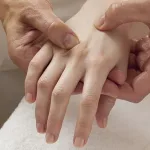Experts Warn: 4 Essential Steps to Safe Nasal Irrigation Without Tap Water

What are the Benefits of Nasal Irrigation?
The benefits of nasal irrigation are manifold, with one of the primary advantages being its ability to clear mucus and allergens from the nasal passages. By flushing out these substances, nasal irrigation promotes better breathing and reduces congestion, providing relief for individuals suffering from allergies, sinus infections, or nasal congestion. This simple yet effective practice offers a natural way to alleviate discomfort and improve overall nasal health.
Regular nasal irrigation is a highly effective method for relieving sinus congestion, particularly for those dealing with sinusitis or chronic nasal issues. By using a saline solution, nasal irrigation helps to thin out the mucus, making it easier to expel and thereby reducing the pressure and discomfort in the sinuses. This simple yet powerful practice offers a natural and drug-free way to alleviate sinus congestion and promote better breathing and overall nasal health.
Nasal irrigation plays a crucial role in enhancing hydration by moisturizing the nasal tissues and maintaining proper hydration levels. Dry nasal passages often result in discomfort, nosebleeds, and increased susceptibility to infections. However, regular nasal irrigation helps to alleviate these issues by providing much-needed moisture to the nasal passages, ensuring they remain hydrated and healthy.
Utilizing a sterile saline solution for nasal irrigation is instrumental in preventing infections by eliminating the risk of introducing harmful microorganisms into the nasal passages. Unlike tap water, which can contain contaminants, the use of a sterile solution reduces the likelihood of sinus infections and associated complications. By adopting proper irrigation techniques, individuals can safeguard their nasal health and mitigate the risk of infections, promoting overall well-being and comfort.

Regular nasal irrigation plays a vital role in supporting allergy management by effectively washing away allergens that tend to accumulate in the nasal passages, including pollen, dust, and pet dander. By flushing out these allergens, nasal irrigation helps reduce the frequency and severity of allergic reactions, providing much-needed relief for individuals prone to allergies.
Nasal irrigation serves as a crucial component of post-surgical care following sinus or nasal surgery, offering numerous benefits for healing and recovery. By facilitating gentle cleansing of the nasal passages, nasal irrigation helps prevent crusting and promotes optimal healing. Moreover, it plays a key role in maintaining clear nasal passages, which is essential for ensuring proper airflow and reducing the risk of complications during the recovery process. Incorporating nasal irrigation into post-surgical care routines can significantly enhance overall outcomes and promote a smoother recovery experience for patients undergoing sinus or nasal surgery.
Consistent nasal irrigation is instrumental in promoting overall nasal health by supporting healthy sinuses and reducing the reliance on medications. This natural and drug-free practice effectively removes excess mucus, allergens, and irritants from the nasal passages, helping to alleviate congestion and prevent infections. By incorporating nasal irrigation into regular hygiene routines, individuals can maintain optimal nasal health, minimize discomfort, and enhance their overall well-being without the need for pharmaceutical interventions.
Remember to use distilled, sterile, or previously boiled water for nasal irrigation. Always consult a healthcare professional if you have specific concerns or medical conditions. The benefits of nasal irrigation extend beyond comfort—they contribute to your overall well-being.
What are 4 Effective Nasal Irrigation Methods?
Here are four effective nasal irrigation methods that you can consider for maintaining healthy sinuses and alleviating symptoms:
1. Neti Pots: Neti pots are widely used devices for nasal irrigation, offering a simple yet effective way to cleanse the nasal passages. To use a neti pot, fill it with a saline solution, typically made by mixing water and salt. While leaning over a sink, tilt your head to the side and gently pour the solution into one nostril. As the solution flows through the nasal passages, it effectively rinses away mucus, allergens, and irritants, promoting clearer breathing and overall nasal health. Repeat the process with the other nostril for comprehensive cleansing and relief from congestion.
2. Rinse Bottles: Rinse bottles are specifically crafted for effortlessly dispensing saline solution into the nostrils, offering a convenient and precise method for nasal irrigation. With their design optimized for controlled delivery, rinse bottles ensure an efficient and comfortable experience while cleansing the nasal passages. Like neti pots, they are used while leaning over a sink to allow for proper drainage and effective removal of mucus, allergens, and irritants. Rinse bottles provide a user-friendly alternative for individuals seeking relief from nasal congestion and improved nasal health.
3. Bulb Syringes: Bulb syringes serve as another option for nasal irrigation, offering a simple and handheld approach to cleansing the nasal passages. To use a bulb syringe, fill it with the saline solution and gently squeeze it into the nostrils. This method is particularly convenient for children or individuals who prefer a more manageable device for nasal irrigation. By effectively delivering the saline solution, bulb syringes help flush out mucus, allergens, and irritants, promoting clearer breathing and improved nasal health.
4. Containers with Prefilled Saline Solution: Containers with prefilled saline solution offer a convenient and hassle-free option for nasal irrigation. Equipped with special applicators, these containers come ready to use, sparing users the effort of preparing their saline solution. Simply follow the instructions provided with the container for seamless nasal irrigation. This user-friendly approach eliminates the need for mixing solutions and ensures a straightforward experience for individuals seeking relief from nasal congestion and improved nasal health.
Remember to use distilled or sterile water to avoid introducing any substances that could irritate your sinuses. If you have specific health conditions or concerns, consult your healthcare provider before starting nasal irrigation.
What are the natural Remedies for Nasal Irrigation?
When it comes to natural remedies for nasal irrigation, there are several effective methods you can try to maintain healthy sinuses and alleviate symptoms. Let’s explore these options:

- Warm Compresses: Warm compresses are a soothing remedy for alleviating facial pain associated with sinus congestion and inflammation. By applying warm, damp towels around the nose, cheeks, and eyes, individuals can effectively ease discomfort and promote drainage. The gentle warmth helps to soothe inflammation and encourage the release of trapped mucus, providing relief from sinus pressure and congestion. Incorporating warm compresses into a daily routine can offer comfort and support overall nasal health, especially during times of sinus discomfort.
- Hydration: Maintaining proper hydration is essential for keeping nasal passages moist and healthy. Drinking an adequate amount of water throughout the day helps prevent dryness and irritation in the nasal passages, reducing the risk of discomfort and congestion. Hot beverages, such as herbal tea, offer an added benefit by providing hydration along with soothing steam. The steam from hot beverages can help moisturize nasal tissues and promote easier breathing, making them particularly beneficial for individuals experiencing nasal congestion or sinus discomfort. By prioritizing hydration and incorporating hydrating beverages into your daily routine, you can support optimal nasal health and overall well-being.
- Humidification: Employing a humidifier in your bedroom overnight can be an effective strategy for alleviating nighttime nasal blockages and enhancing respiratory comfort. The humidified air emitted by the humidifier helps maintain moisture levels in the sinuses, preventing dryness and congestion. By creating a more humid environment, the humidifier promotes easier breathing and reduces the severity of nasal discomfort during sleep. Incorporating humidification into your nighttime routine can provide significant relief from nasal congestion and contribute to better overall sleep quality and nasal health.
- Steam Therapy: Steam therapy is a simple yet effective method for alleviating congestion and swelling in the nasal passages. Whether by taking hot showers or using steam bowls, inhaling steam can offer immediate relief by clearing nasal passages and reducing discomfort. The warmth and moisture from steam helps to loosen mucus, making it easier to expel and promoting clearer breathing. Integrating steam therapy into your daily regimen offers prompt and organic alleviation from nasal congestion, enabling enhanced breathing comfort and a revitalized sensation.
What are the potential Risks of Nasal Irrigation?
Nasal irrigation is generally safe and beneficial, but being aware of potential risks is essential. Here are some considerations:
1. Infection Risk: Using improper nasal irrigation procedures increases sinus infection risk, underscoring the significance of maintaining good hygiene. To avoid bacterial growth and contamination, ensure the irrigation device and its components are thoroughly cleaned after every usage. Neti pot users can further lower their risk of infection by letting their gadget air dry completely after cleaning. People can benefit from nasal irrigation safely and without needlessly risking illness by adhering to stringent cleanliness measures.
2. Tap Water Dangers: There are serious hazards associated with using tap water for nasal irrigation since it could include germs or amoebas that cause serious diseases. Distilled or sterile water must be used for nasal irrigation to reduce these risks. People can protect their nasal health and lessen the chance of coming into contact with dangerous microbes when they are irrigating by making the usage of clean water sources their priority.
3. Ear-Related Issues: While nasal irrigation is generally safe, it can occasionally result in ear-related complications. Leakage of the irrigation solution into the ear canal may lead to issues such as fluid buildup, increased pressure, earaches, or even ear infections. To minimize the risk of these problems, it’s crucial to ensure proper technique and positioning during nasal irrigation, preventing the solution from entering the ears. Additionally, individuals experiencing persistent ear-related symptoms after nasal irrigation should seek medical advice for appropriate evaluation and treatment.
4. Discomfort and Irritation: Ensuring the saline solution’s temperature is just right is essential to avoid discomfort and irritation during nasal irrigation. Water that is excessively hot or cold can trigger discomfort in the nasal passages, potentially leading to burning or stinging sensations. It’s crucial to carefully adjust the temperature of the saline solution to a comfortable level before proceeding with nasal irrigation. By maintaining an optimal temperature, individuals can undergo nasal irrigation smoothly and effectively, minimizing any potential discomfort or irritation.
Latest Research on Nasal Irrigation Methods
Here are some recent research findings related to nasal irrigation methods:
Effect of Nasal Irrigation After Endoscopic Sinus Surgery:
A randomized controlled trial recently investigated the impact of an evidence-based nursing program on nasal irrigation in individuals with chronic rhinosinusitis (CRS) following endoscopic sinus surgery. The study revealed compelling findings suggesting that adhering to such a program can yield multifaceted benefits for patients undergoing postoperative care. Notably, the implementation of an evidence-based nasal irrigation regimen was associated with significant improvements in several key areas.
Firstly, participants who followed the program experienced enhanced nasal mucosal recovery postoperatively, indicating a more efficient healing process. Additionally, the study observed improved treatment efficiency among individuals who adhered to the prescribed nasal irrigation protocol, suggesting a potential acceleration of therapeutic outcomes. Perhaps most importantly, patients reported increased levels of comfort and a notable enhancement in their overall quality of life, underscoring the profound impact of evidence-based nasal irrigation interventions in postoperative CRS management.
Nasal Irrigation in Adults Infected with the Omicron Variant of COVID-19: In a quasi-experimental study examining adults infected with the Omicron variant of COVID-19, researchers explored the impact of nasal irrigation on respiratory symptoms. While the study does not specifically target chronic conditions, its findings shed light on the potential advantages of nasal irrigation in mitigating respiratory symptoms during viral infections. Nasal irrigation, a simple and non-invasive technique, has garnered attention for its ability to alleviate congestion, clear nasal passages, and reduce inflammation.
By irrigating the nasal passages with a saline solution, individuals may experience relief from symptoms such as nasal congestion, post-nasal drip, and sinus pressure, potentially enhancing overall respiratory comfort and well-being. These findings underscore the importance of exploring adjunctive therapies like nasal irrigation in managing respiratory symptoms associated with viral infections, including those caused by the Omicron variant of COVID-19.
Radiographic Comparison of Nasal Saline Irrigation Methods: In a research study, three methods for nasal saline irrigation were compared through radiographic analysis. While the specific methodologies and outcomes are not detailed here, the study underscores the significance of assessing various techniques to determine the most effective approach. Evaluating different nasal saline irrigation methods allows researchers and healthcare professionals to identify the technique that yields the most favorable radiographic outcomes. By conducting such comparisons, valuable insights can be gained to optimize nasal irrigation practices and enhance patient outcomes. This research highlights the importance of evidence-based assessment and continual refinement of nasal saline irrigation methods to ensure optimal results for individuals seeking relief from nasal congestion and related conditions.
Twice-Daily Nasal Irrigation and COVID-Related Illness: A recent study proposed that initiating twice-daily nasal irrigation with a mild saline solution shortly after testing positive for COVID-19 could yield positive effects. While the study’s primary focus may not center on chronic conditions, it highlights the potential versatility of nasal irrigation in diverse contexts, including respiratory illnesses like COVID-19. Nasal irrigation is recognized for its ability to alleviate congestion, clear nasal passages, and potentially reduce viral load, offering a simple yet potentially impactful intervention for managing symptoms and promoting recovery. These findings underscore the importance of considering nasal irrigation as a complementary strategy in the management of COVID-related illness and other respiratory conditions.
Advances in Nasal Drug Delivery Systems for Chronic Rhinosinusitis: A comprehensive review article delves into recent advancements and future outlooks in nasal drug delivery systems for upper respiratory ailments, notably chronic rhinosinusitis. While the focus may not be solely on nasal irrigation, the review offers valuable insights into innovative strategies for managing chronic sinus conditions. By exploring novel approaches in drug delivery, such as nasal sprays and aerosols, researchers aim to enhance treatment efficacy and patient outcomes in the management of chronic rhinosinusitis and related disorders. These advancements underscore the ongoing efforts to optimize therapeutic interventions for individuals suffering from chronic sinus ailments, highlighting the potential for improved management and relief.
Conclusion:
In conclusion, the review of recent advances in nasal drug delivery systems for chronic rhinosinusitis underscores the evolving landscape of treatment options for upper respiratory diseases. While the focus of the article extends beyond nasal rinses specifically, it illuminates innovative approaches that hold promise for managing chronic sinus conditions effectively. By exploring new delivery mechanisms and formulations, researchers aim to enhance the efficacy and convenience of nasal drug administration, ultimately improving patient outcomes and quality of life. As the field continues to progress, the integration of these advancements into clinical practice has the potential to revolutionize the management of chronic rhinosinusitis and other related disorders.
FAQs:
Q: Are nasal rinses suitable for all ages?
Answer: Nasal rinses are generally safe for adults and children, but it’s essential to consult a healthcare professional, especially for younger children or individuals with specific medical conditions.
Q: How frequently should nasal rinses be performed?
Answer: The frequency of nasal rinses can vary depending on individual needs and medical advice. In general, performing nasal rinses once or twice daily or as recommended by a healthcare provider is typical for managing chronic rhinosinusitis.
Q: Can nasal rinses cause side effects?
Answer: While nasal rinses are generally well-tolerated, some individuals may experience mild side effects such as temporary discomfort, irritation, or dryness. It’s essential to follow proper techniques and consult a healthcare professional if adverse reactions occur.
Q: Are there any contraindications for using nasal rinses?
Answer: Individuals with certain medical conditions, such as a history of ear infections, nasal polyps, or recent nasal surgery, should consult with a healthcare professional before attempting nasal rinses. Additionally, those with compromised immune systems or allergies to saline solution ingredients should avoid nasal rinses.
Q: Can nasal rinses replace other treatments for chronic rhinosinusitis?
Answer: While nasal rinses can be an effective adjunctive therapy for managing chronic rhinosinusitis, they are typically used in conjunction with other treatments such as medications or surgery, depending on the severity and underlying causes of the condition. It’s essential to work with a healthcare provider to develop a comprehensive treatment plan tailored to individual needs.













